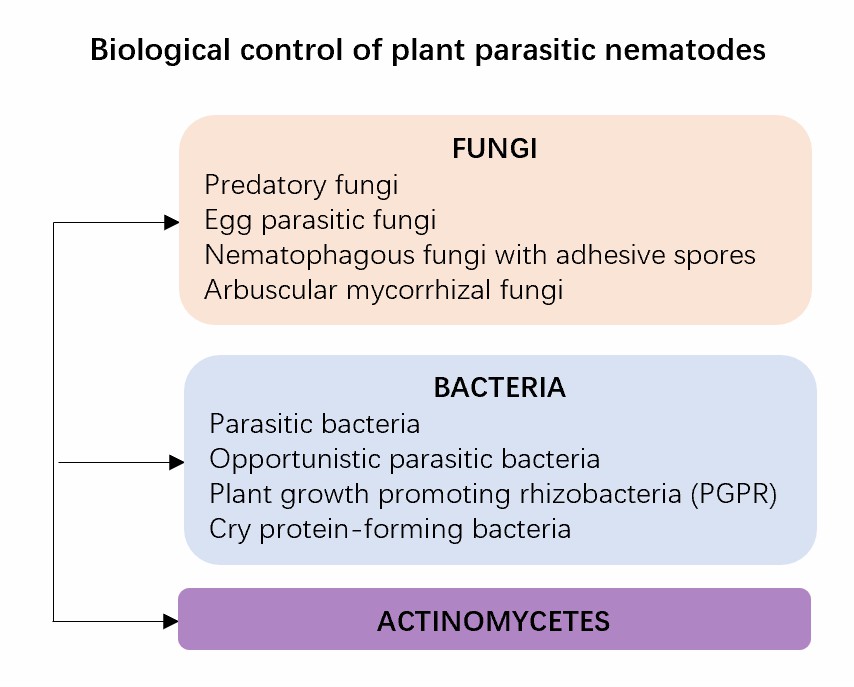Plant nematodes represent a major threat to the agricultural production of different crops worldwide. Due to the high toxicity of chemical nematicides, it is necessary to develop new control strategies against nematodes. Strategies associated with biocontrol are proposed as a much safer alternative and highly practicable for plant-parasitic nematode management. The term biological control (or biocontrol) applies to the use of living organisms to suppress the population density or impact on a specific pest organism, making it less abundant or less damaging than it would otherwise be.
Lifeasible is a leading provider of comprehensive, high-quality services for the biological control of plant nematodes. We hope to partner with you to explore new frontiers in plant science and accelerate your discovery.
 Fig.1 The mechanisms of biological control of plant nematodes.
Fig.1 The mechanisms of biological control of plant nematodes.
Streptomyces is an important class of microbial resources for controlling plant pathogenic nematodes, which act mainly in an antagonistic or virulent manner against nematodes. Many fermentations of actinomycetes have been found to have nematocidal activity. We also provide analysis services for actinomyces control of plant nematodes.
Lifeasible provides analysis of plant endoplasmic reticulum to our clients worldwide. With years of experience in biological services, our advanced platforms can help our clients solve various difficulties in detecting glutathione with plant research. If you are interested in our services or have any questions, please feel free to contact us or make an online inquiry.
Lifeasible has established a one-stop service platform for plants. In addition to obtaining customized solutions for plant genetic engineering, customers can also conduct follow-up analysis and research on plants through our analysis platform. The analytical services we provide include but are not limited to the following:
Get Latest Lifeasible News and Updates Directly to Your Inbox
Adaptive Evolutionary Mechanism of Plants
February 28, 2025
Unraveling Cotton Development: Insights from Multi-Omics Studies
February 27, 2025